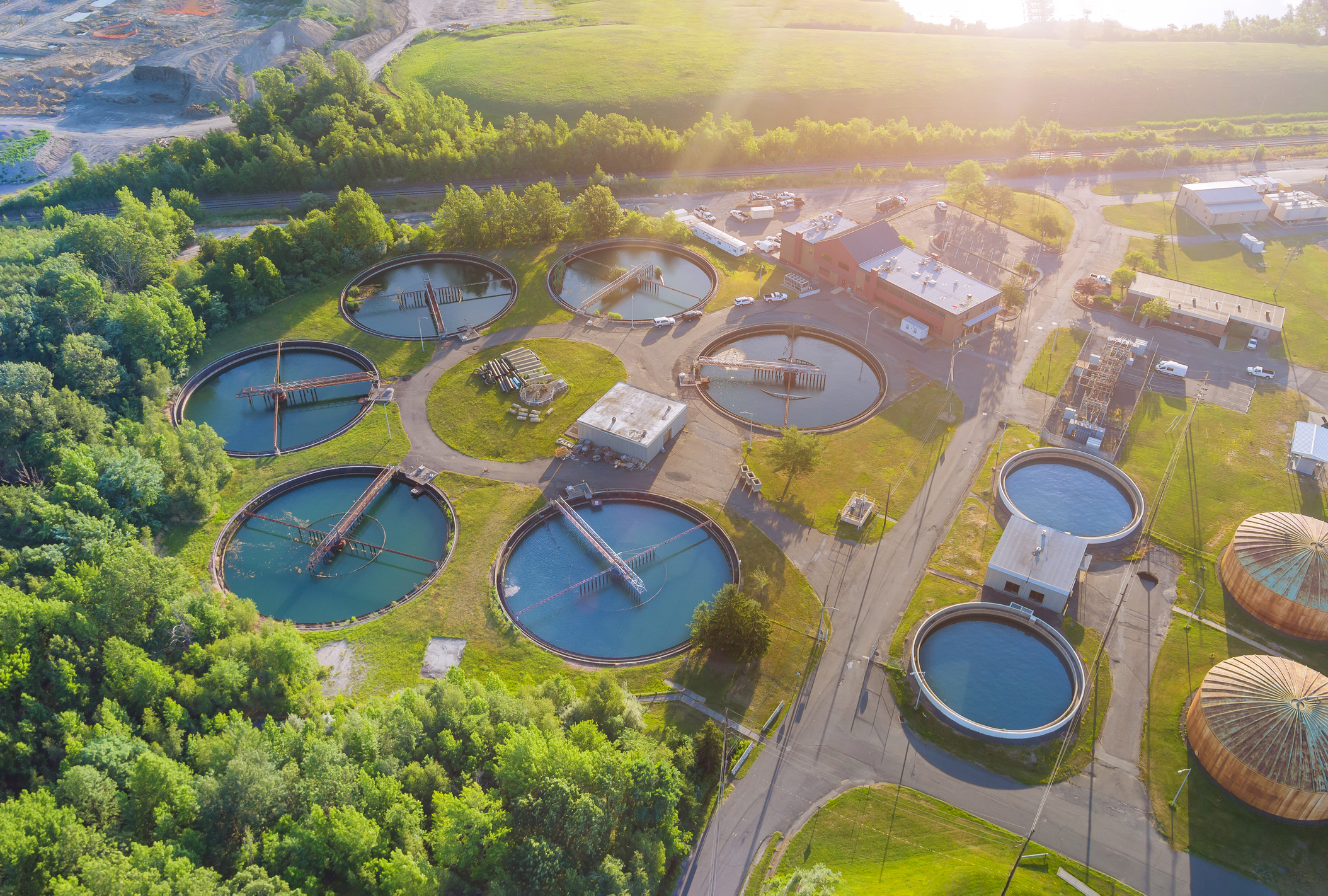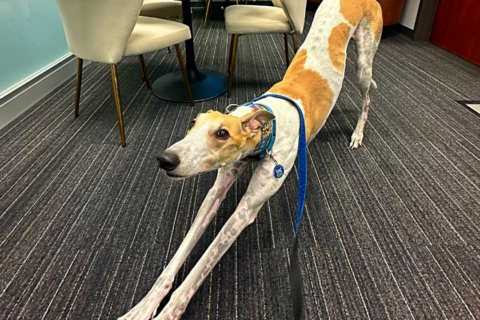The blog was authored by Aliyah A. Ali, MPH and Sara Zeigler
Throughout 2024, the National League of Cities (NLC) organized workshops in Dallas County, TX, Laredo, TX, and Wayne County, MI, to help communities strengthen their capacity for wastewater monitoring. These workshops brought together stakeholders from local municipalities, utilities, laboratories, academia, public safety, elected officials and public health agencies. These workshops aimed to foster collaboration across these sectors and establish a common understanding of the potential benefits of wastewater monitoring for public health. By laying this groundwork, the workshops aimed to empower municipalities to take proactive steps in enhancing their efforts to safeguard community health through wastewater monitoring.
What is wastewater monitoring?
Wastewater monitoring is the analyzation of sewage to detect pathogens, high-risk substances, and other critical health indicators. Wastewater monitoring is a powerful tool to protect community health and to assist in detecting these evolving threats.
Each workshop was tailored to the unique challenges of the host city and/or county and emphasized partnership development, addressing specific municipal needs, and tapping into resources to enhance local efforts. National and regional experts, including representatives from the Centers for Disease Control and Prevention’s (CDC) National Wastewater Surveillance System staff, WastewaterSCAN, CDC Community of Practice Leads and CDC Centers for Excellence, provided technical guidance, helping participants align their programs with best practices.
The workshops demonstrated that the potential for wastewater monitoring to improve health outcomes lies not just in the technology itself but in the collaboration and strategic partnerships that make it effective. Through workshops like these, communities can accelerate their capacity-building efforts, translating data into timely interventions that can significantly impact public health outcomes.
Lesson 1: Lay the Groundwork — Research, Discover, and Connect
As more cities recognize the potential of wastewater monitoring to enhance public health, many are exploring available resources, identifying expertise and determining how to leverage local and national partnerships to get started. This initial stage of discovery is just as crucial as implementation, as it lays the groundwork for building a program that meets the unique needs of each community.
For example, the Wayne County health department does not yet have an established wastewater monitoring program, but neighboring municipalities are actively engaged in similar efforts. The Wayne County workshop, held in the City of Dearborn, MI, emphasized the importance of understanding the landscape of available tools, data-sharing mechanisms and resources. For communities like Wayne County that are just starting out, learning from the experiences of others and understanding the resources available is crucial. This knowledge helps build a strong foundation for creating a successful and sustainable wastewater monitoring program.
Lesson 2: Build Bridges — Forge Strong Connections
Successful wastewater monitoring involves more than just technical expertise. It requires maintaining transparency and ensuring that all stakeholders are informed and engaged. Building a trusted, interdisciplinary network is essential for supporting city and public health leaders as they determine the most appropriate and effective public health interventions to protect the health of their communities.
The NLC workshops prioritized direct interaction between frontline workers and decision-makers. Participants had the unique opportunity to share their day-to-day experiences, insights and challenges with those who shape policy and strategy. This face-to-face engagement was crucial for fostering a mutual understanding of the challenges and opportunities in wastewater monitoring for public health and creating strong communication channels necessary for long-term success and sustainability.
The Dallas County workshop, held in the City of Dallas, TX, highlighted the importance of trust and collaboration among stakeholders, especially among public health officials and other partners. The direct engagement provided opportunities for participants to discuss how wastewater data can be effectively utilized for public health.
For cities looking to establish or expand similar programs, focusing on foundational interactions can help create a flexible and resilient system. Prioritizing trust and collaboration will contribute significantly to developing a program that meets diverse needs and supports meaningful public health outcomes.
Lesson 3: Customize for Impact — Tailor Solutions to Local Realities
Tailored solutions are essential for wastewater monitoring, as each community faces distinct challenges. While core monitoring principles remain consistent, interventions must adapt to the specific needs, resources and public health threats of each area. The workshops emphasized the importance of developing localized strategies, particularly in communities like Laredo, TX.
Laredo has implemented a wastewater monitoring program that addresses its unique health dynamics. By analyzing wastewater for pathogens, high-risk substances and other critical health indicators, the city gains insights that inform targeted public health interventions. What distinguishes Laredo is its collaborative approach. The City of Laredo has built strong partnerships with public health leaders, utilities, research institutions and public safety departments, including police and fire services.
This collaboration allows Laredo and its partners to identify neighborhoods most affected by high-risk substance use, guiding door-to-door outreach efforts. Through these efforts, officials have been able to educate residents on the use of overdose reversal tools, and provide information on local resources, including substance use treatment options. Through these efforts, officials have educated residents on overdose reversal tools and provided information on local resources, including substance use treatment options. This approach highlights the power of data to drive more precise and impactful public health responses, ensuring the community receives the support it needs.
Lesson 4: Leverage Innovations for Tomorrow’s Challenges
The workshops highlighted a critical focus on advancing wastewater monitoring technologies to enhance both speed and precision. Participants discussed how new methodologies and tools could streamline the detection process, allowing for quicker and more accurate identification of public health threats.
A key aspect of these innovations is the role of technology partners. Contributions from organizations like Black & Veatch and laboratories such as Verily are crucial for improving system reliability and data accuracy. Additionally, emerging tools from WastewaterSCAN and Biobot Analytics are pushing the boundaries of what’s possible, optimizing both the speed and precision of data collection and analysis.
The growing enthusiasm among cities for these innovations underscores a broader ambition to refine wastewater monitoring. By continuously advancing these technologies, communities can achieve more timely and accurate public health responses, ultimately leading to more effective interventions.
What You Need to Know About Wastewater Monitoring
When we turn on the tap or flush the toilet, we often don’t think about where all that water goes. Wastewater, the used water from our homes, schools and businesses, holds valuable information about the health of our community. Wastewater monitoring can help cities manage wastewater effectively and also create a safer, healthier and more responsive living environment for their communities. Learn how wastewater monitoring can help you ensure the health of your community.
Acknowledgements: The National League of Cities worked in collaboration with the Dallas County Department of Health, City of Laredo, and Wayne County Department of Health and Veterans Services to implement the wastewater surveillance workshop and appreciates the support of WastewaterSCAN for making these transformational events possible.











